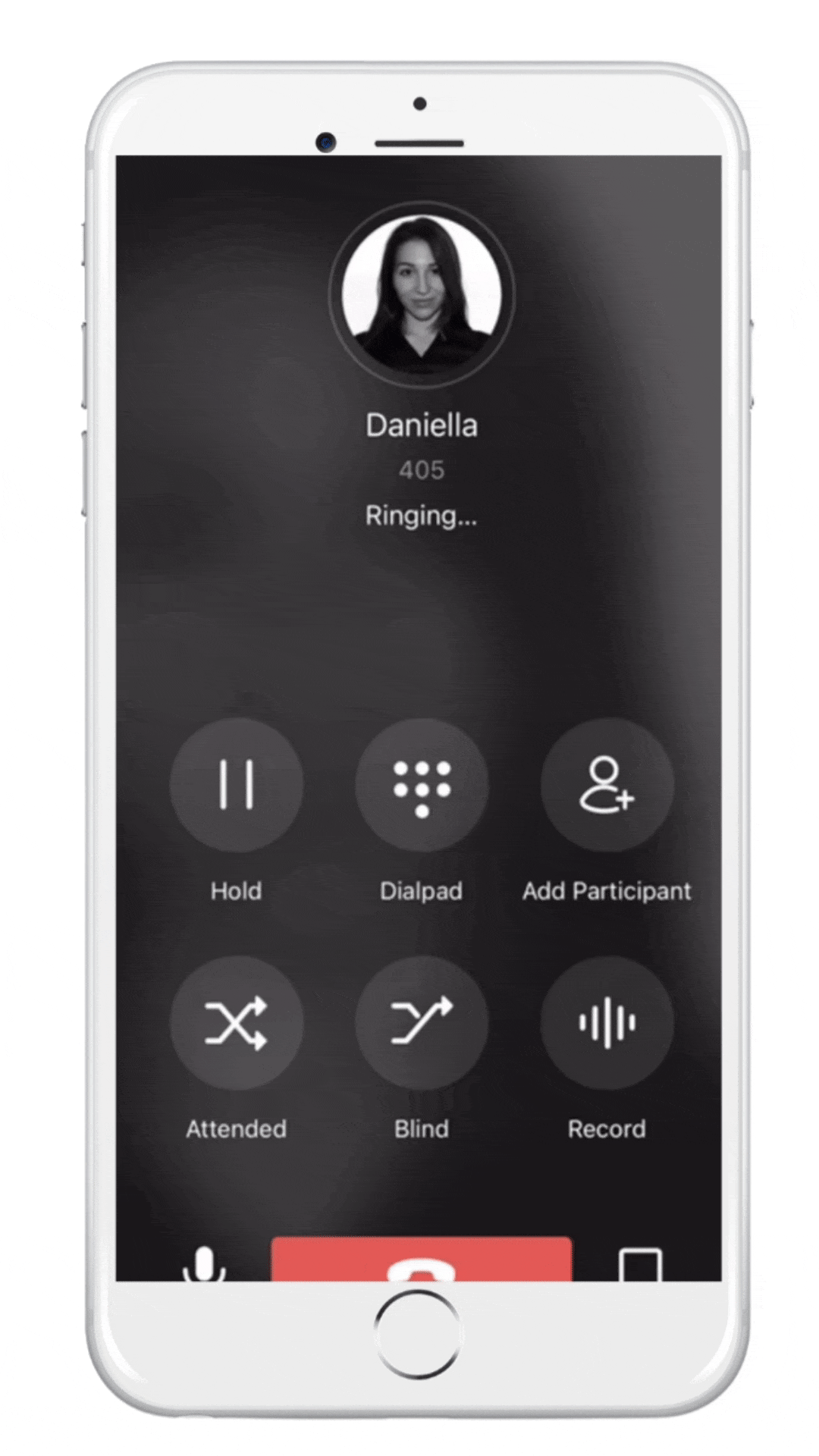What is a softphone?
What is a softphone?
You’ve probably used a softphone-type interface without realising it. Zoom or Zoho Meeting are popular softphone examples that many businesses have recently used, when going remote in 2020.
A business softphone is actually not a desk phone or any other physical device, it is a software application that is installed on a connected device. It can be installed on desktops and mobile devices, so in short softphones allow you to make telephone calls without an actual telephone.
Softphone app users will be able to access all the same features as a hard phone, including making calls, receiving calls, setting up call forwarding, voicemail and more. It features all the buttons you might expect a business phone to have.
How does a softphone work?
Even though your softphone service is a web-based application, it can be affiliated with a real telephone number, complete with a local area code if desired. This means your softphone is completely accessible to landline-based phones too. If you're switching from a landline service to a cloud-based option, you can keep your current number through a process called porting, whereby numbers are transferred between carriers with minimal downtime.

Call features that will make your life easier
Call features that will make your life easier
Now that you know what a softphone does let’s explore the innovative features that you get with a business softphone.
- Presence - Employee presence enables you to see the availability of your employees: Available, Away, Do not disturb, Lunch break or Business trip. This real time visibility enables employees to avoid missing calls or call transfers which makes production run a lot smoother.
- CRM integration - The CRM integration between Yeastar and Zoho is an easy click to call and call logging action. You can integrate with Zoho One, Zoho CRM, Zoho Mail and Zoho Recruit. You can click on any number to make an out bound call straight from Zoho. You can also display inbound callers information as a pop-up on the CRM. This integration allows for a smoother flow rather than switching between different applications.
- Voicemail - The voicemail feature allows you to record, upload or write the script for a customised message to greet calls when you're away, busy or on another call.
- Call recording - This feature is an easy way to confirm details, monitor quality and guide training sessions, instead of trying to write all the relevant information down or remember it without making any notes, it's a feature that you simply click whilst on a call.
- Google Chrome extension - Linkus softphone users who install the Yeastar Linkus for Google Chrome Extension on Chrome browsers can automatically click to dial any valid phone number that appears on their web browser.
- Transfer to any extension - Extensions allow users to make and receive calls within the company. You can add extensions to every employee in your company. This feature makes it easier to quickly make a call, transfer a call, add a user to a conference call or do an attended transfer rather than searching for their name or dialing a ring group.
- Speed Dial- Sometimes you may just need to call someone quickly without having to look up his/her phone number. You can do so by simply defining a shortcut number. You can use the Speed Dial feature to place a call by pressing a reduced number of keys. This feature helps to optimise your time quickly and efficiently.
- IVR - IVR uses voice prompts to provide callers with instructions and directions for accessing information via phone. When users call into the PBX IVR, the users would operate by following the IVR prompt instructions. The PBX system has one default IVR prompt, but you can switch out the IVR prompts to various different audio files, example closing times during the festive season or which extensions to dial for the department that you want to get into contact with.

Pros of using a softphone
Significant cost savings
Save up to 50% over traditional phone systems and cut costs with low per second billing VoIP rates. Softphones relieve you from the financial burden of having to purchase or lease many physical phones and the lack of equipment eliminates most future maintenance costs.
Efficiency of resources
Softphones save you from the hassle of needing to install and configure your old traditional phones. Leveraging your already owned computer hardware to migrate to a new phone system means no need to buy new phone, new wiring or new hardware to maintain. It also frees up space on your desk and eliminates wires, plugs and power cords.
Phone lines are no longer required
Softphones use internet bandwidth, therefore there is no need to install a dedicated phone line as you once did with a traditional phone. You can also add as many workstations as you want without worrying about the cost of phone lines.
Portability & Mobility
As long as users are connected to the internet on their computer or mobile device, they can install the softphone app and use every feature. Business communication does not need to stop just because you have left the office. You can work anywhere at anytime.
Ease of use and quick setup
Cons of using a softphone
Although there are many benefits of a softphone over hard phone technology there can also be a few potential drawbacks to consider when considering hard phones vs softphones.
The biggest issue with a softphone is that your ability to make and receive calls is completely dependent on your internet connection. That means that power outages, storms, or simply your current bandwidth will impact audio quality and overall availability.
In conclusion
In conclusion when you choose softphones for your business, you’re making a wise choice to upgrade your communications. Softphones have everything you need of a traditional desk phone but with integrated functions that level up everyday interactions in a virtual world.
Do you want a free softphone demo?
See how the DSL Telecom Cloud PBX and softphones can benefit your business, with a free 15-min online or in-person demonstration session
